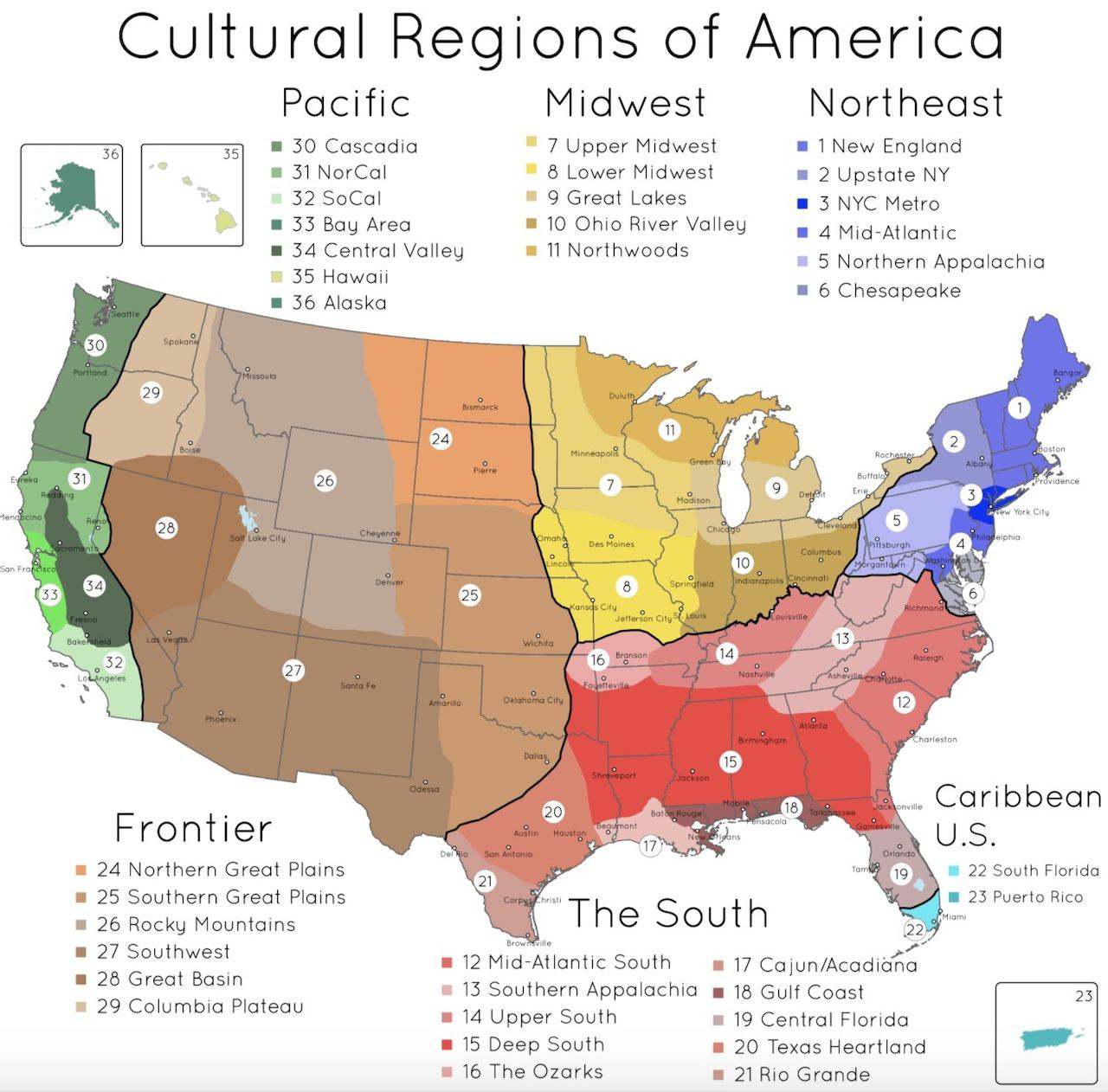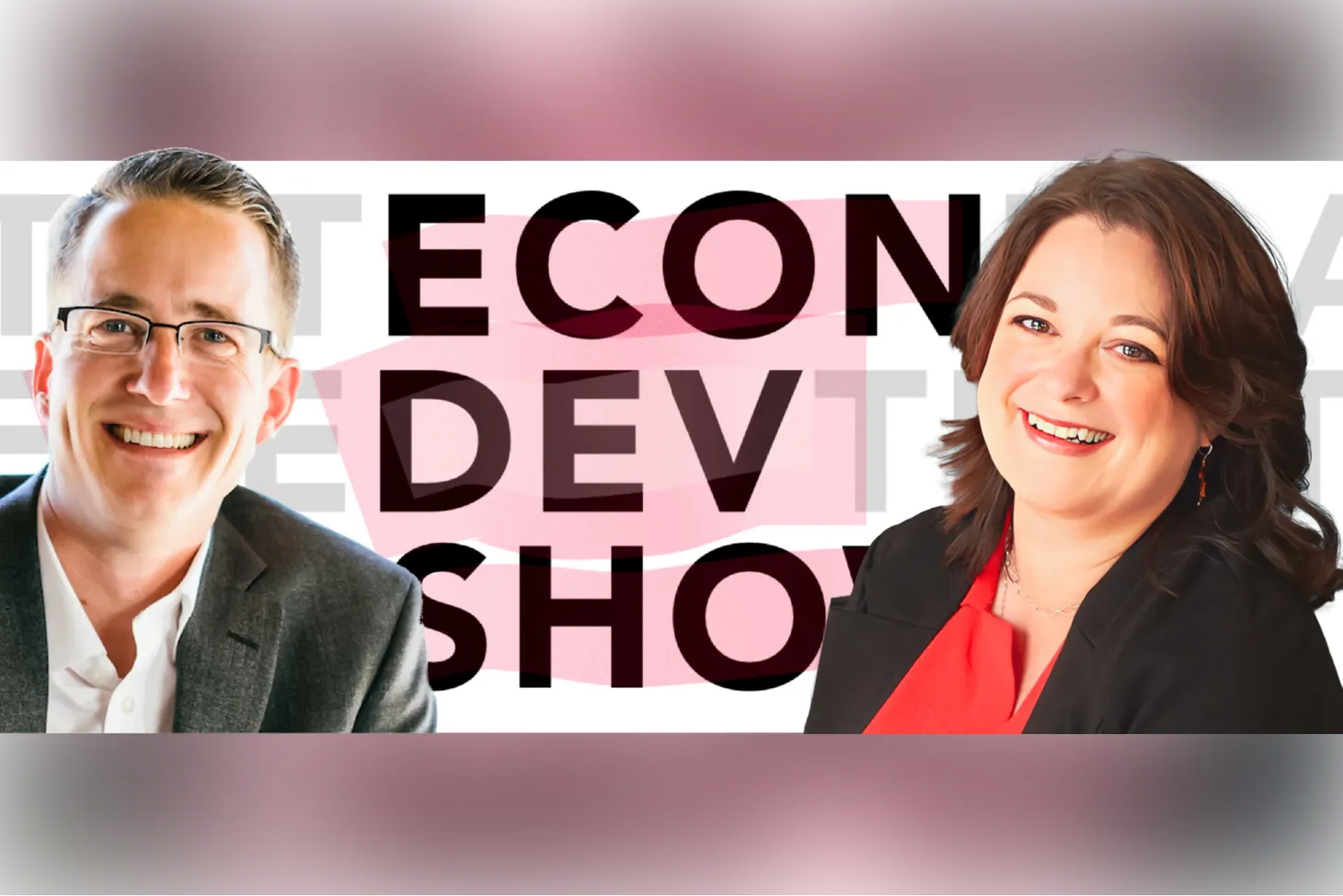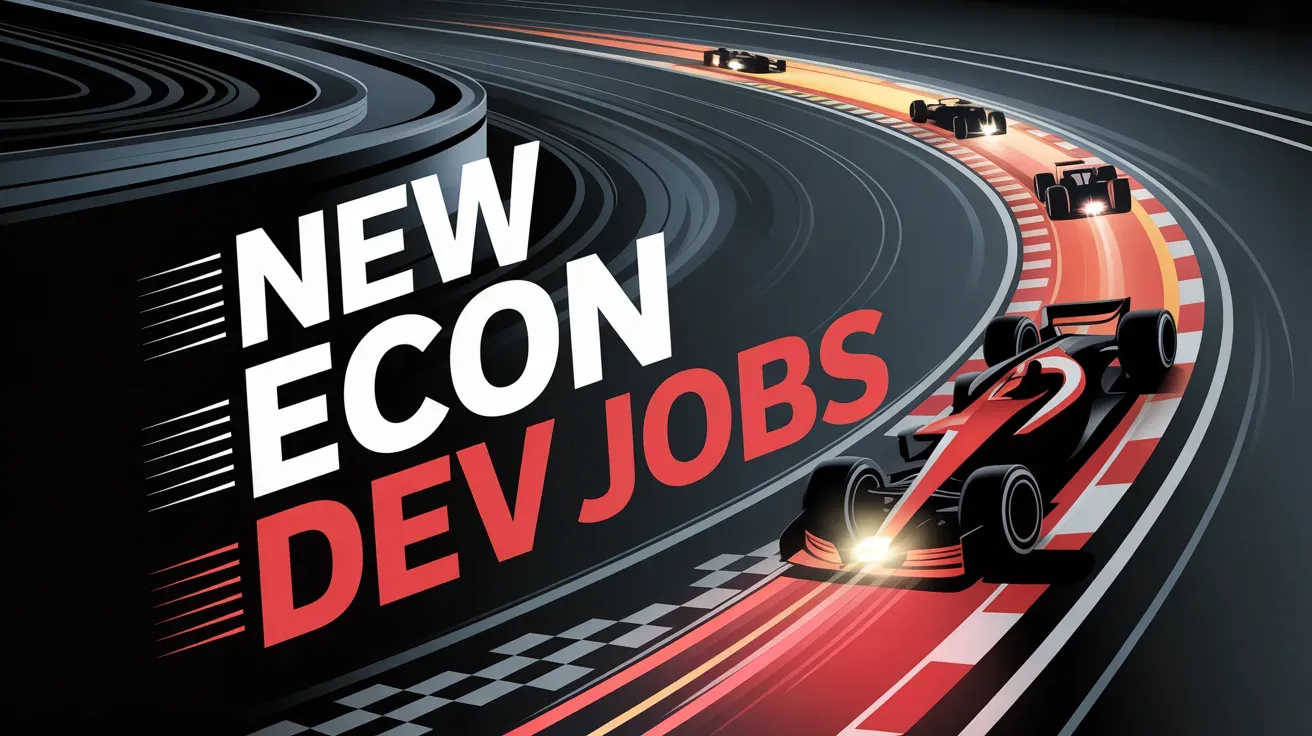21 Things Economic Developers Need to Know This Week
The stories Dane thinks you need to see. September 25, 2025 edition.

Welcome to this week's issue of What Economic Developers Need to Know This Week, where we explore the evolving dynamics of our economy.
This week we have 21 tools, stories, graphics, charts and videos that I think you'll find informative, useful, inspiring, and perhaps even humorous. Some are economic development related directly, and some only indirectly. 🤔
If you're wondering what to do with the info in this newsletter, send something to your board members. It will make you look good!
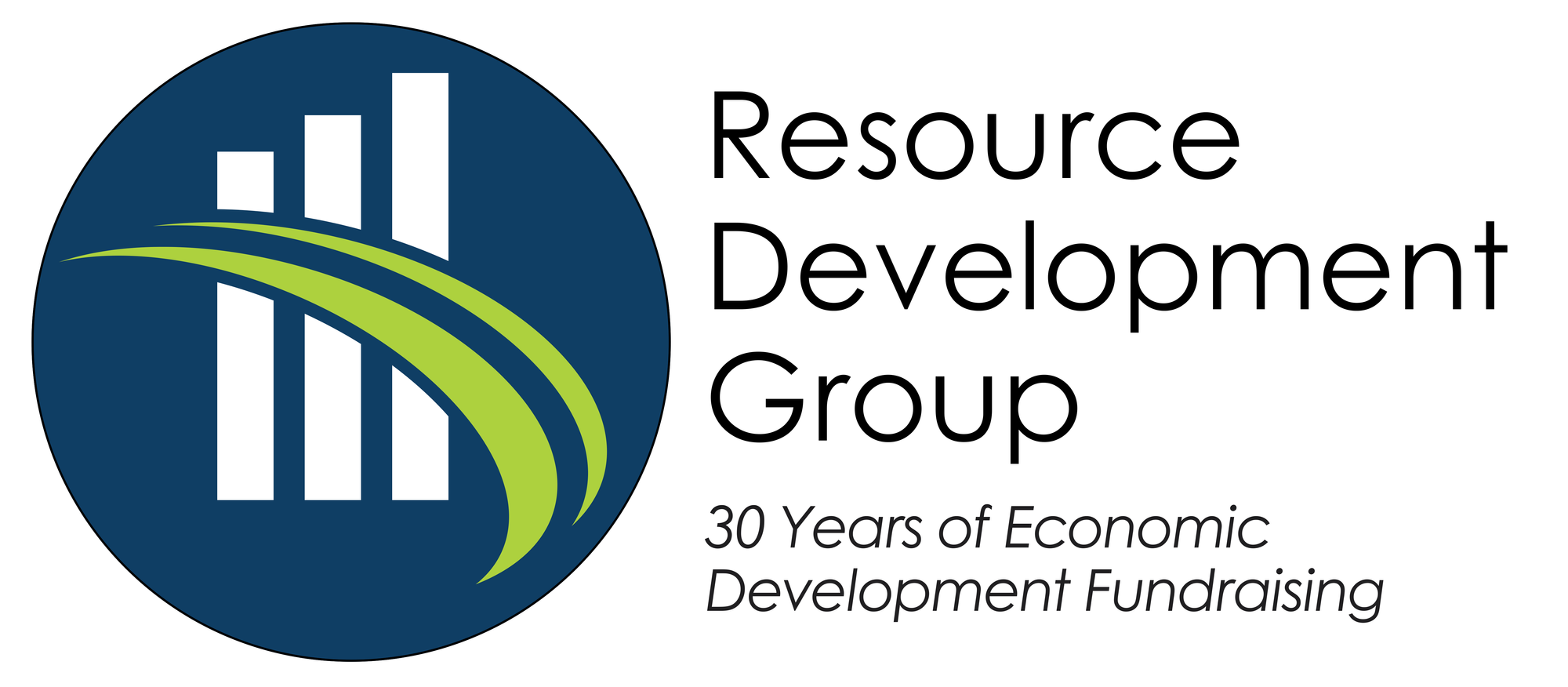
Today's email is brought to you by Resource Development Group
Founded in 1995, RDG offers customized economic development fundraising solutions exclusively for Chambers of Commerce and Economic Development Organizations. That’s their niche. That’s their specialty.
Their highly experienced team has raised over $2 billion -- yes, that’s $2 billion with a “B” -- for communities of all sizes and organizations just like yours.
Every community is unique. Tulsa, OK, is not Maury County, TN. Atlanta, GA is not Detroit, MI. Chattanooga, TN is not Charlottesville, VA. Don’t use another community’s fundraising playbook and expect the same results!
RDG's experts excel in providing customized economic development fundraising solutions for every situation. So whether you’re a single county EDO ready to kick off your first fundraising campaign or a large regional organization on your third funding cycle, they have the team and experience to get you the results you’re looking for.
1) Economic Development and Developers in the News # 214 - Econ dev news from 107 economic development executives and organizations in 23 states.
2) How Small EDOs Can Win Big Projects with Sitehunt - The Secret Advantage of Small EDOs
3) Podcast 191: The Power of Showing Up in Communities with Jamie Beasley - Why “boots on the ground” sometimes means mud on your shoes
4) 57 New Economic Development Jobs This Week - From $48,972–$231,400
5) 19 Things Economic Developers Need to Know This Week - The stories Dane thinks you need to see. September 18, 2025 edition.
6) President Trump's team is weighing a plan to spur the construction of factories and other infrastructure in a bid to jump-start the American manufacturing sector: Under the plan, the administration would use money from a $550 billion investment fund established as part of trade negotiations with Japan to invest in the development of semiconductors, pharmaceuticals, critical minerals, energy, ships and quantum computing.
7) The state capacity crisis: For the past decade, an ideologically disparate group of scholars have warned that America faces a crisis of "state capacity" -- the ability of government officials to translate policy goals into action and produce good outcomes. This concept, borrowed from development economics, has traditionally been used to explain why some nations succeed while others fail. A state with strong capacity can enforce contracts, prevent private violence, supply public goods, mobilize capital, and deliver basic services. A state with weak capacity struggles with these tasks.
8) Why, as a responsible adult, SimCity 2000 hits differently: As a child, I'd think nothing of temporarily cranking up property taxes just to pay for a pet project; now, it makes me think of my own slowly rising property tax bill. As a child, I saw the "legalized gambling" ordinance as an easy hack to fill in a budget gap in a struggling city; now, I think about all the attendant problems that would come if my town suddenly became a gambling mecca.
9) Jeff Siegler: Downtown revitalization fails when we only support small businesses but ignore small building owners. Businesses need quality, available space, and that depends on engaged local developers, not absentee landlords.
10) Maine's prison remote work program highlights an overlooked labor pool: With the right training and technology, incarcerated individuals can become part of the skilled workforce, helping to fill persistent labor shortages while also reducing recidivism.
11) Which jobs rely most on tips in the US?
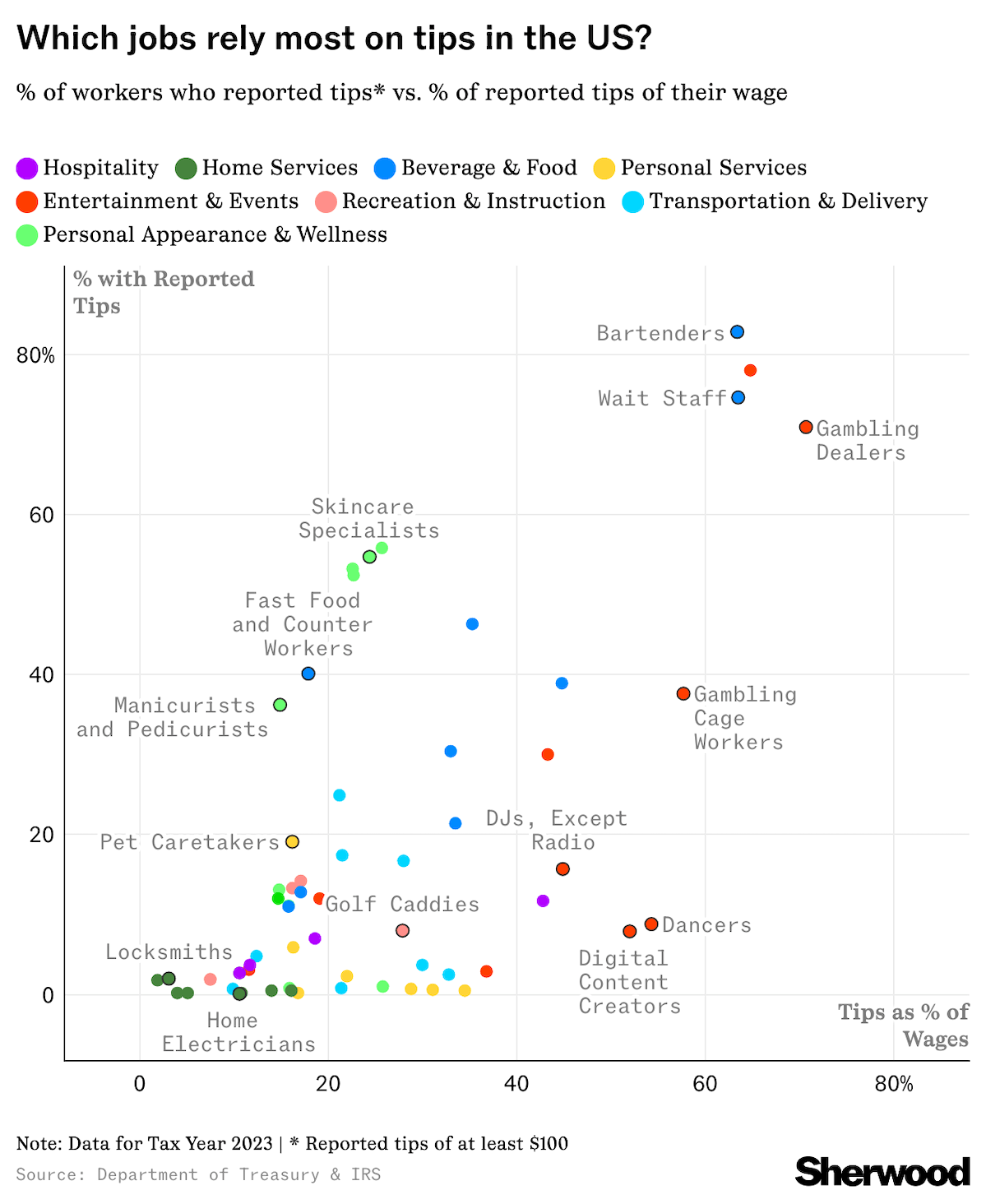
12) Top 15 North American airports by passenger satisfaction:
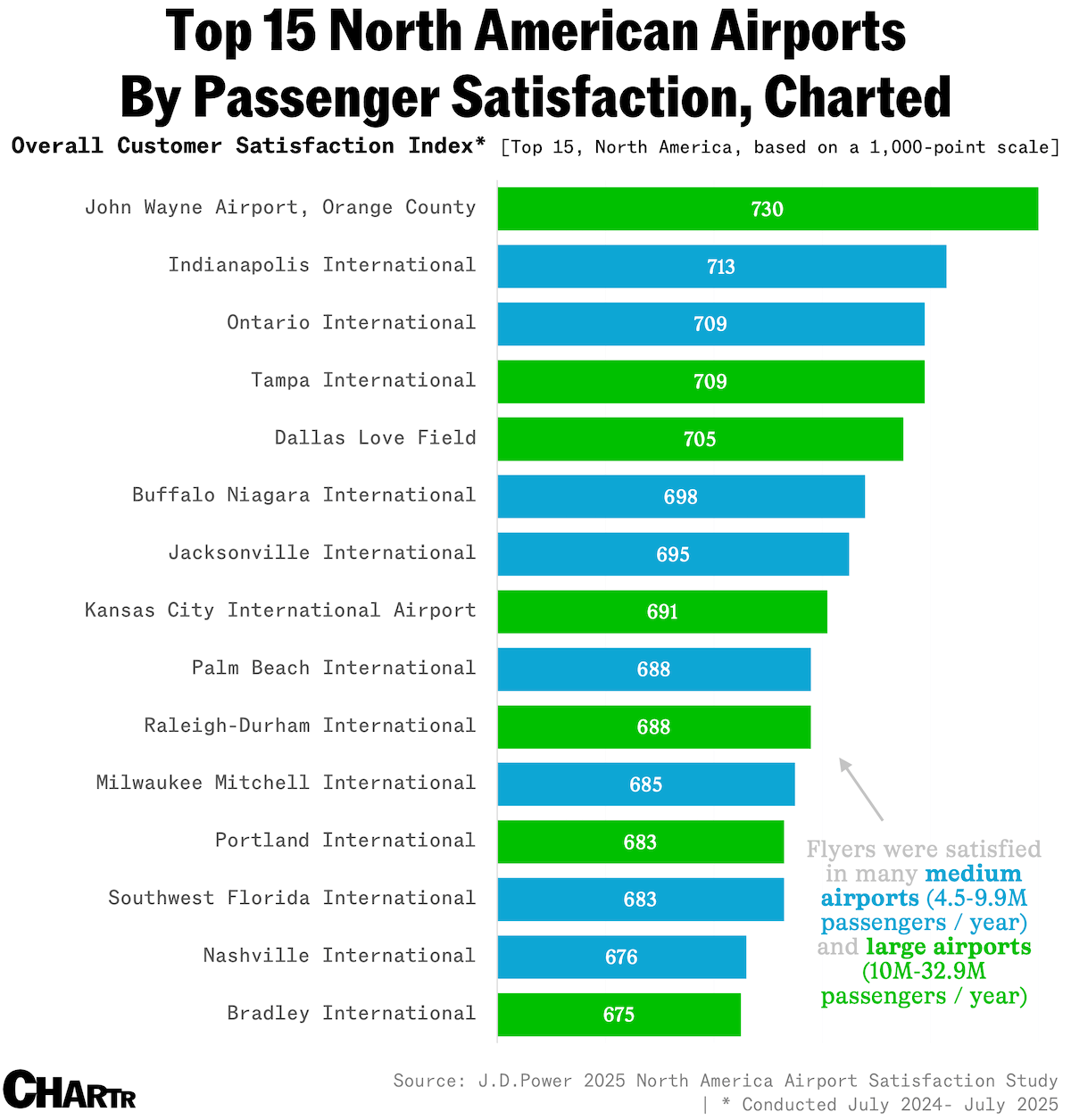
13) The Bureau of Labor Statistics recently released employment data for August, which reported that 1.9 million people in the US were long-term unemployed (jobless for 27-plus weeks) — almost double the number of people recorded in early 2023.
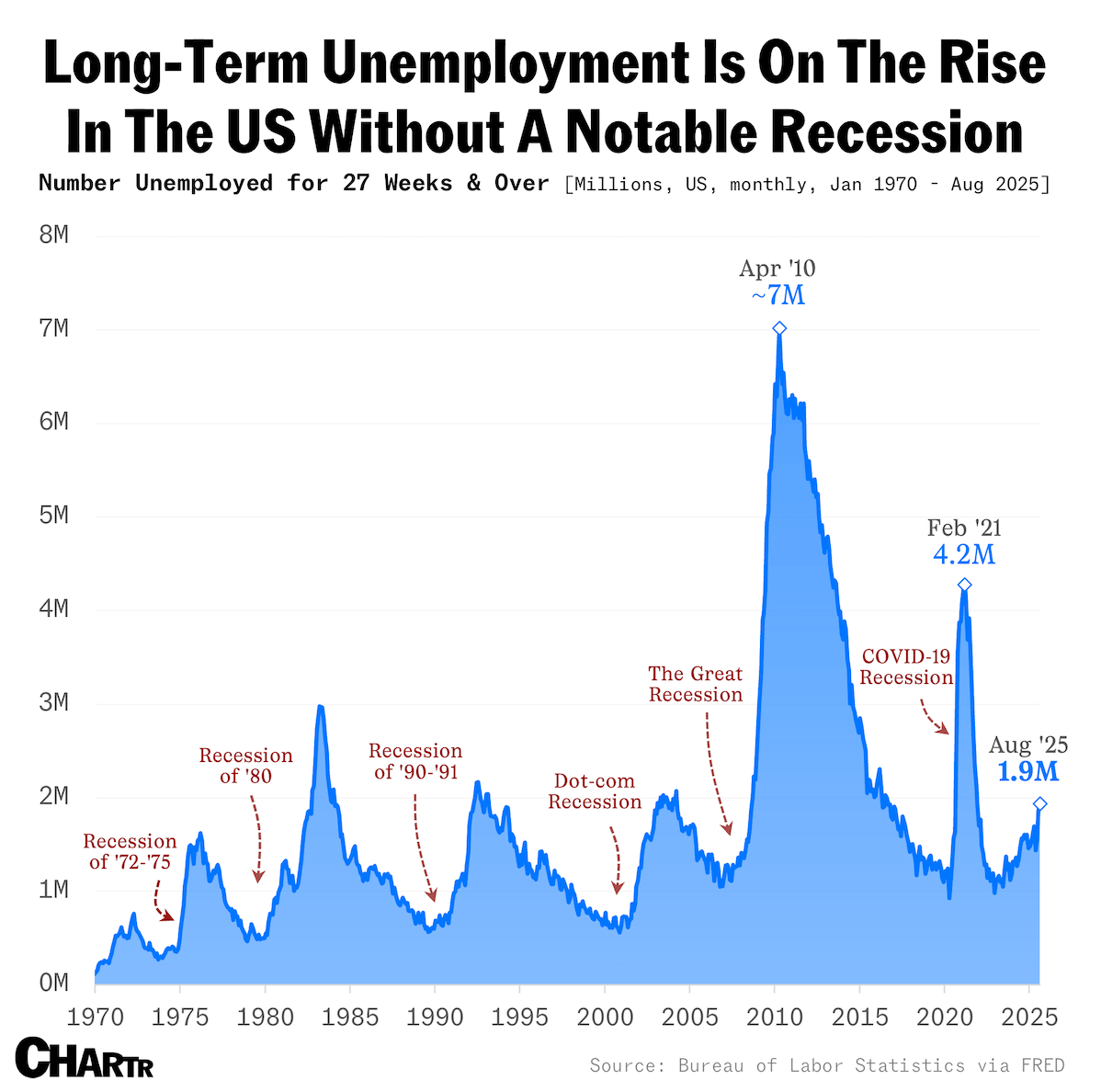
14) The chatbot has all but eliminated the need for search users to click on links, and it’s made a significant dent in web traffic directed to news sources, which most sites have relied on for revenue for years:
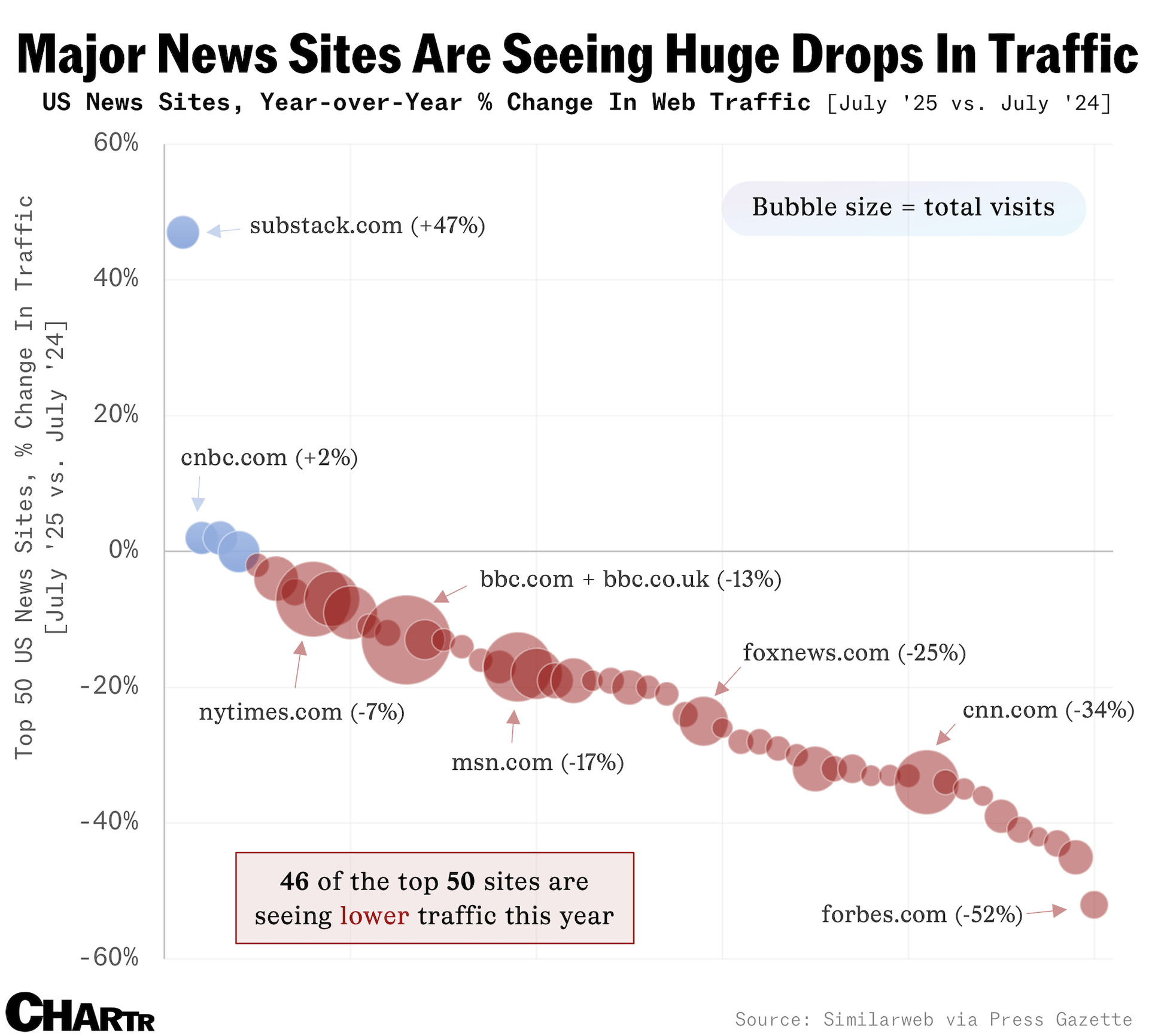
15) The Trump administration's steep new fees for H-1B work visas have rattled US businesses, but you wouldn't know it by the sound of the crickets out in corporate America. A few days in, most big companies are staying quiet as they wait to see how the policy plays out.
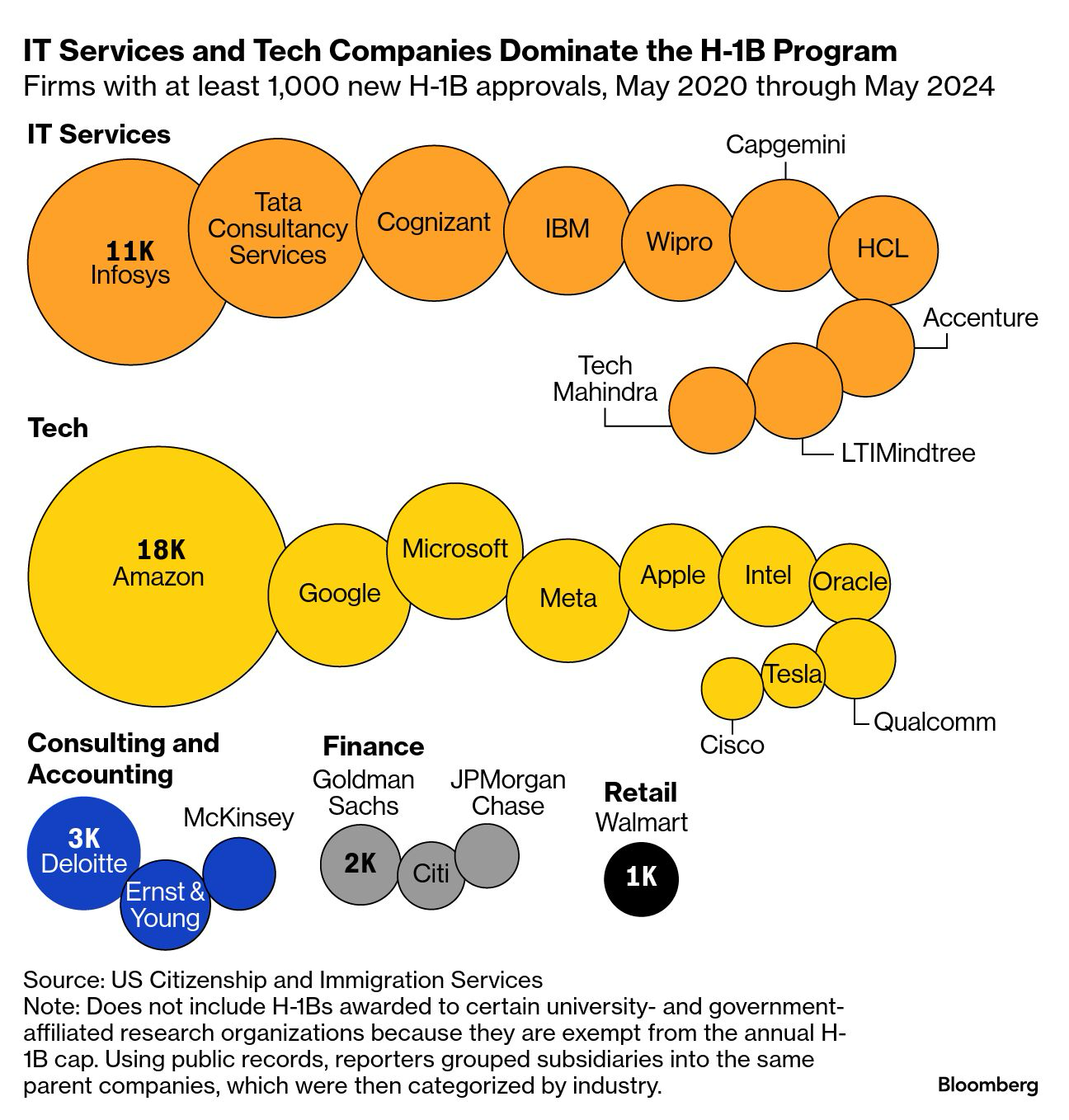
16) Interesting read from the Economist: The global rush to "bring back" factories is built on misconceptions. Politicians want manufacturing jobs, growth, and security -- but modern factories are automated, create fewer middle-class roles, and don't guarantee stronger economies. Across-the-board subsidies risk lowering wages, reducing productivity, and stifling innovation.
In other words:
- Jobs aren't coming back. Modern factories are automated and employ far fewer people without degrees. Most new roles are for engineers and technicians, not the kind of lunch-pail jobs politicians promise.
- Manufacturing isn't the growth engine it once was. Countries like India show you can grow rapidly without manufacturing dominance, while China's manufacturing clout hasn't guaranteed strong growth lately.
- Security needs are narrower than subsidies. Stockpiles of weapons or rare-earth processing matter for defense, but blanket "reindustrialization" doesn't make a country war-ready -- different factories make very different things.
- China's strength is scale, not just subsidies. Its industrial weight comes from size and market growth, not something most countries can replicate through policy.
- Protectionism backfires. Chasing an old model of factory jobs with subsidies and tariffs risks lowering wages, dampening productivity, and reducing innovation--leaving economies weaker, not stronger.
17) U.S. states with the most doctors:
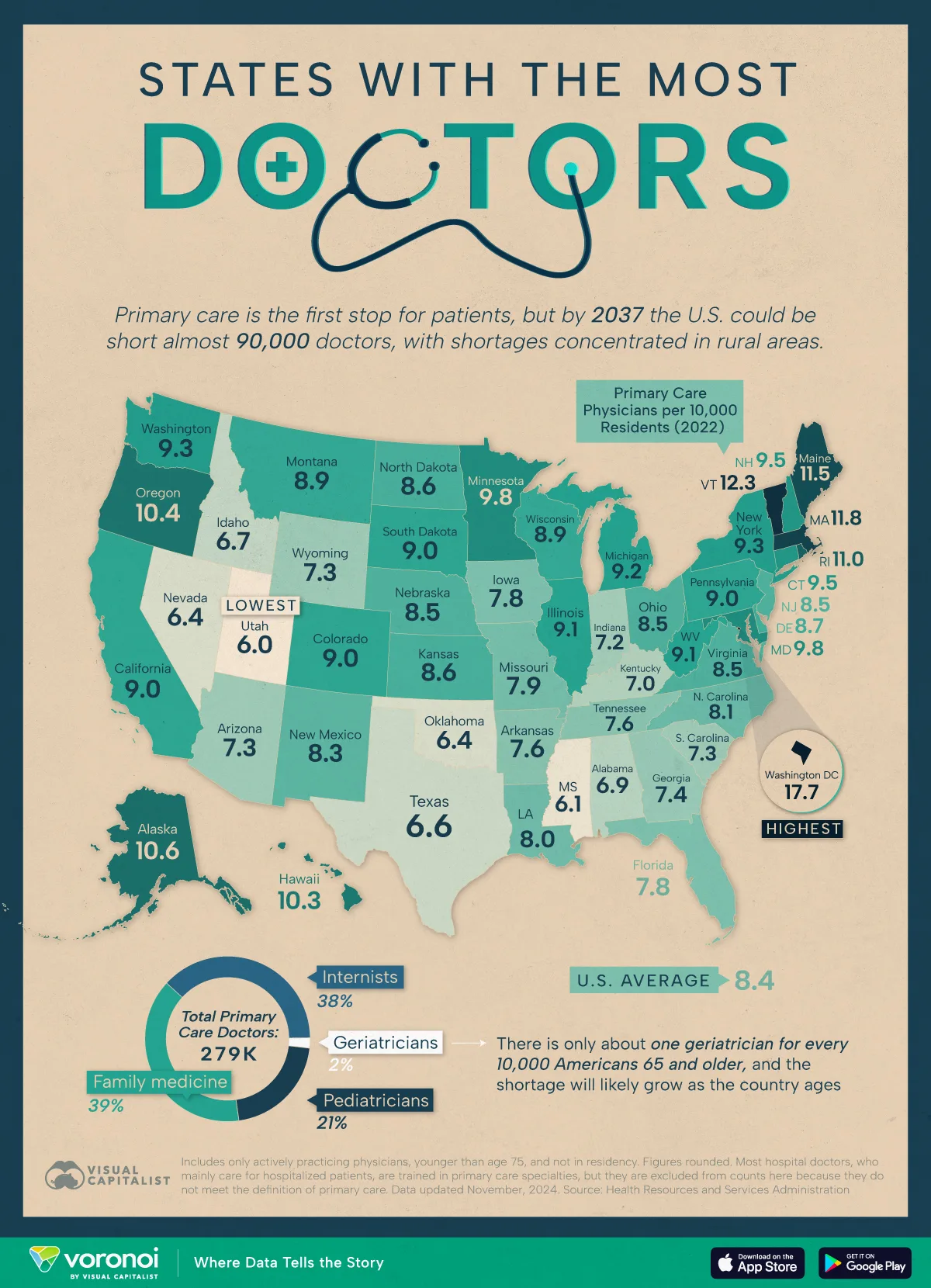
18) U.S. households on welfare by state:
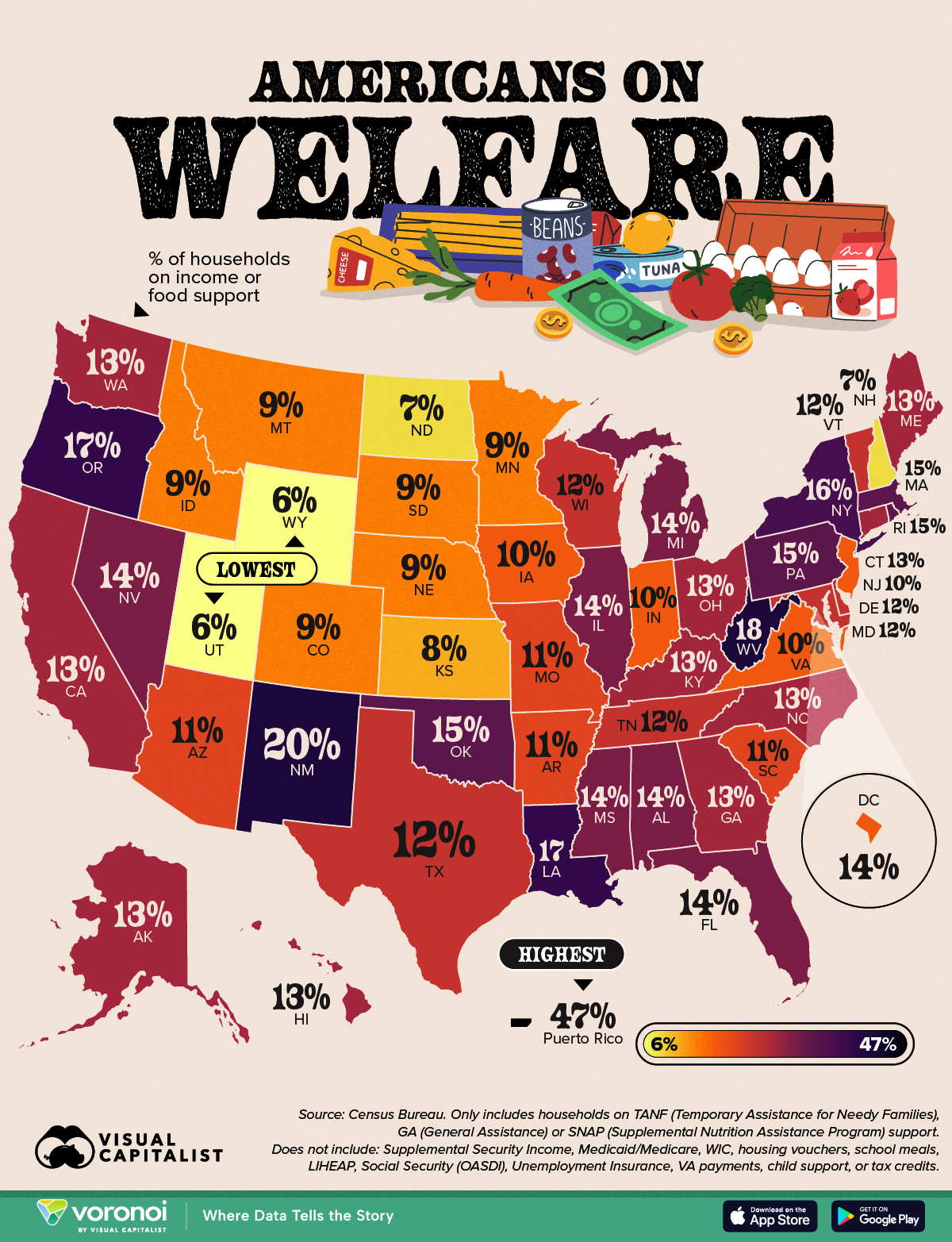
19) Median salary by U.S. state:
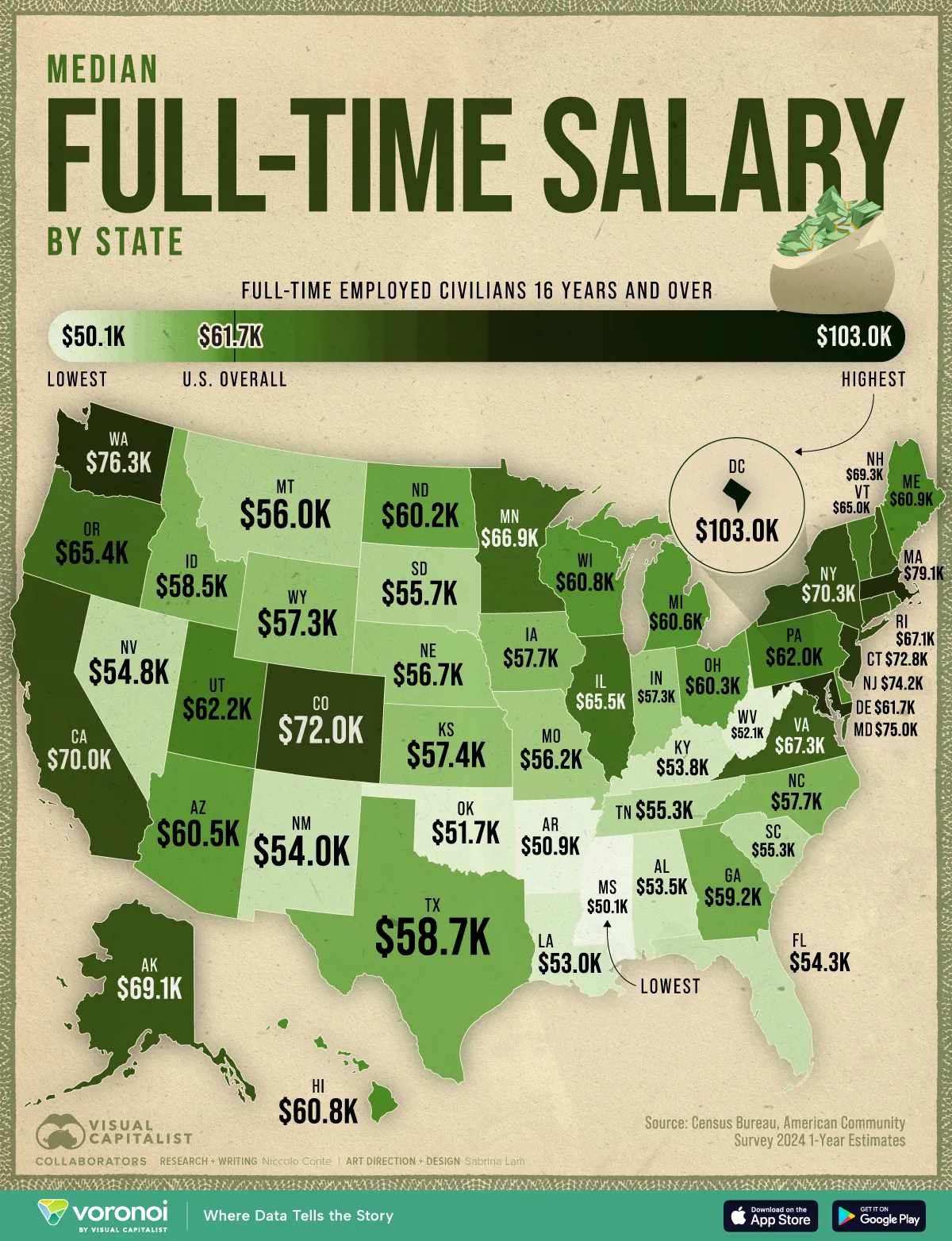
20) American college grad unemployment is not even close to record highs... in fact, it's pretty low:
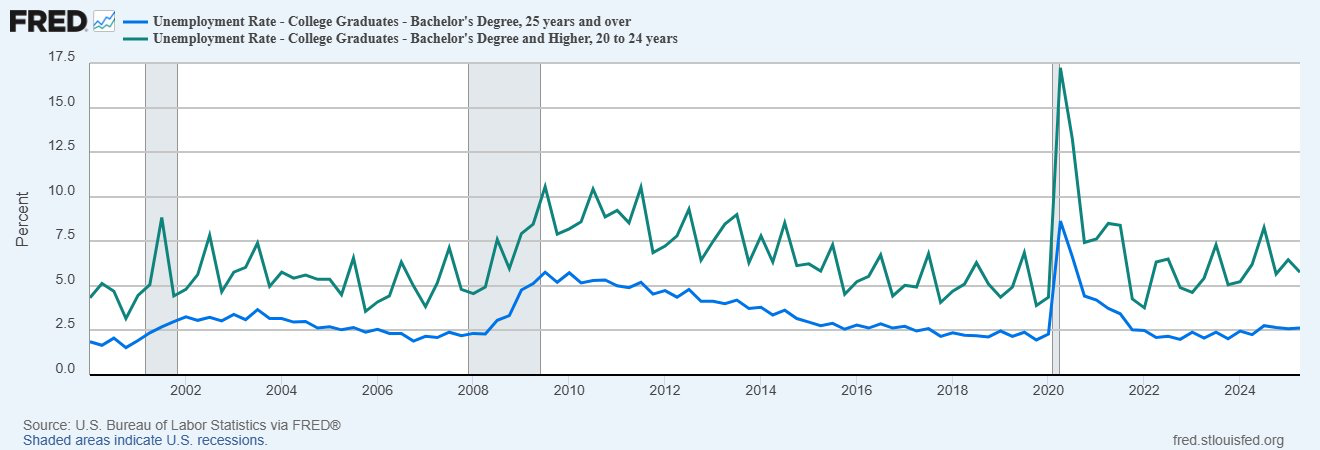
21) The US, by cultural region:
